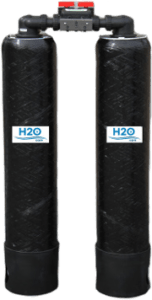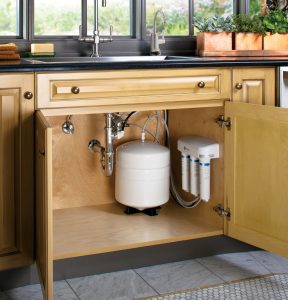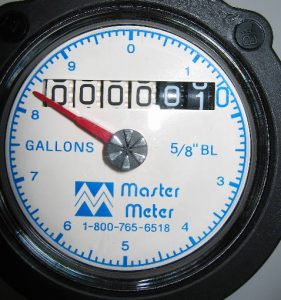REMOVAL OF ARSENIC IN WELL WATER
Approximately 20 percent of private wells in Massachusetts produce water that exhibit unhealthy levels of naturally occurring arsenic in drinking water. Importantly, well inspection and testing well water is the best way to make sure that your water is clean and safe to drink.
Arsenic in drinking water may occur naturally and is a tasteless, odorless and colorless contaminant. Additionally, there are other activities that could also have left residuals. These include apple orchard spraying, coal ash disposal, and use of some pressure treated wood. While there are serious health threats associated with ingestion, there are effective methods for removing arsenic in drinking water. For detail on potential health affects, see the link at: who.int/mediacentre/factsheets.
 The two primary forms in well water are Arsenic III and Arsenic V. Many Arsenic removal media have a low capacity for removing AS III from the water. Therefore, converting it to AS V for removal is a common approach. Additionally, determining the ratio of AS III versus AS V in the water is critical. This will allow the design and implementation of a water treatment system that will effectively remove it from your drinking water. Notably, there are methods to oxidize the AS III and convert it to AS V for ease of removal.
The two primary forms in well water are Arsenic III and Arsenic V. Many Arsenic removal media have a low capacity for removing AS III from the water. Therefore, converting it to AS V for removal is a common approach. Additionally, determining the ratio of AS III versus AS V in the water is critical. This will allow the design and implementation of a water treatment system that will effectively remove it from your drinking water. Notably, there are methods to oxidize the AS III and convert it to AS V for ease of removal.

Point of Entry Arsenic in Water Removal
WATER TESTING & ANALYSIS
Having a complete laboratory water test and analysis, including parameters that can negatively impact arsenic removal media, is critical. Subsequently, a safe water treatment system can be designed to remove arsenic from well water. Also, pH can significantly affect media performance. In addition, other competing ions can affect performance. These include Iron, Manganese, Hardness, Vanadium, Sulfate, Phosphate, Silica, Total Dissolved Solids, Suspended Solids and Hydrogen Sulfide. Go to our publications section of our website and click on the Arsenic removal article at https://h2ocare.com/publications/.
WATER USAGE MONITORING
Determining water usage is also critical to designing an effective arsenic in water removal system that will have the proper capacity. Key information would include well pump size, well pump flow rate, and size of the incoming water line. Also, the number of residents in the home, the number of bathrooms is important. Finally, space availability for equipment installation, electrical availability and water discharge location or restrictions should be determined.
TRACKING WATER USAGE, POST INSTALLATION IS VERY IMPORTANT
A couple of key components for consideration when designing this type of system include:
- Utilizing a meter to track flow rate and total gallons processed is critical to determine the home’s water demand.
- Gallons used readings also assist in uncovering any potential leaks in the home such as running toilets, which will unnecessarily prematurely deplete the arsenic media’s capacity.
LEAD/LAG TANK SET-UP CREATES BACK-UP AND INCREASES SAFETY
Arsenic in well water is a tasteless, colorless and odorless contaminant. Therefore, it is particularly important to have two tanks in series in case the first tank is depleted prior to scheduled service with your water treatment company. Service should be scheduled at intervals determined by the water use tracking data accumulated. However, it should be noted that water usage can be somewhat variable and unpredictable. Following this prescribed approach is an effective, safe approach to protecting your home from the potential harmful affects of arsenic.
REVERSE OSMOSIS TECHNOLOGY

Reverse Osmosis Purification
Alternately, for a point of use system, reverse osmosis is effective in removing arsenic from water. While whole home reverse osmosis systems are available, they are typically not practical from a cost and space standpoint. For more on this, see the link at https://h2ocare.com/reverse-osmosis-ro-water-purification/.
In following, finding Arsenic in well water may first come as a shock, however , if you are contemplating buying a home that has it, a safe, effective system can be installed to eliminate this problem.




